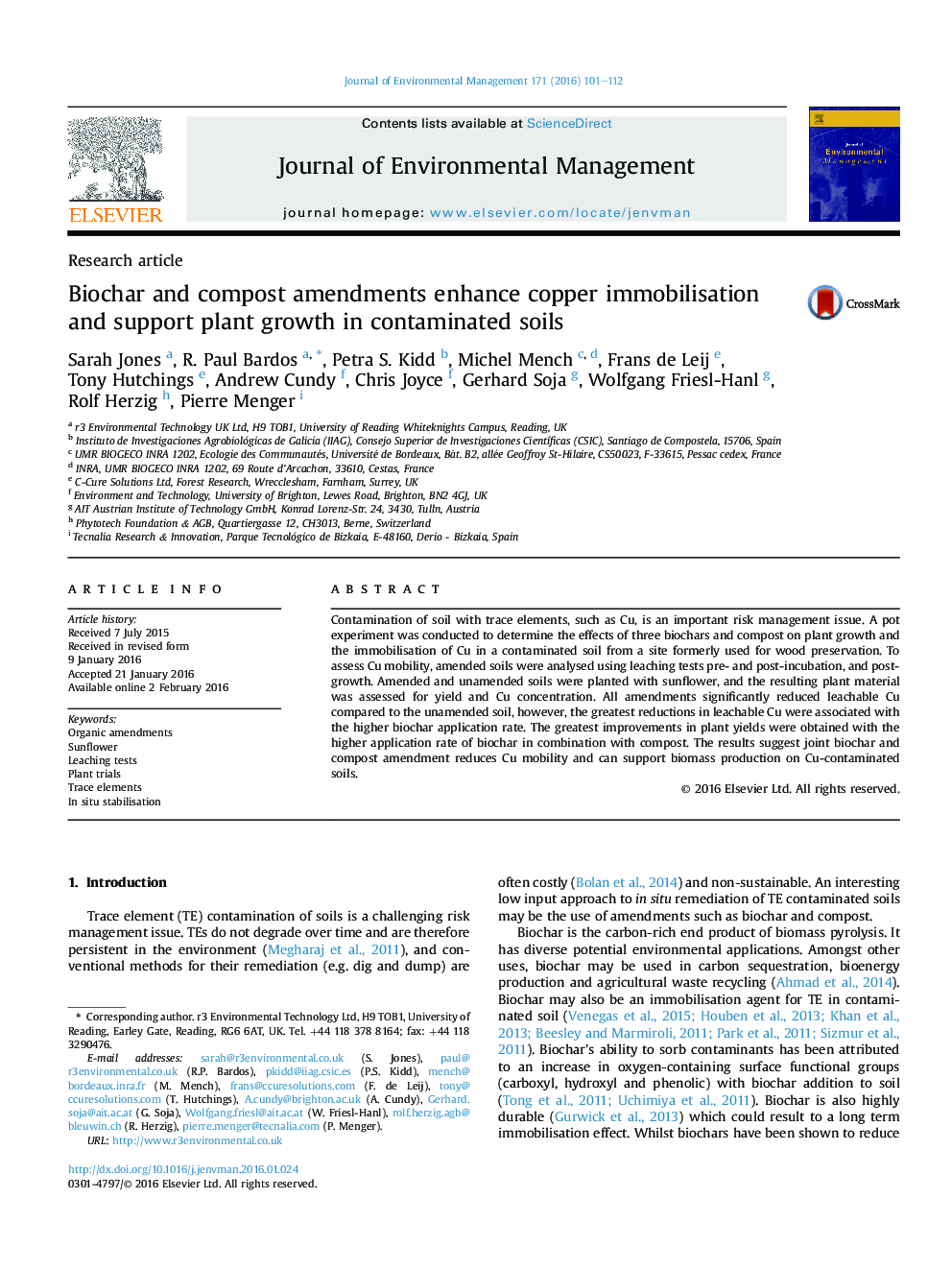| Article ID | Journal | Published Year | Pages | File Type |
|---|---|---|---|---|
| 1055302 | Journal of Environmental Management | 2016 | 12 Pages |
•Cu-contaminated soil was amended with three biochars singly and with compost.•Leaching tests and plant trials determined Cu mobility and plant growth.•All amendments reduced Cu mobility and facilitated plant growth.•Biochar and compost amendments could facilitate plant growth on Cu-contaminated soil.
Contamination of soil with trace elements, such as Cu, is an important risk management issue. A pot experiment was conducted to determine the effects of three biochars and compost on plant growth and the immobilisation of Cu in a contaminated soil from a site formerly used for wood preservation. To assess Cu mobility, amended soils were analysed using leaching tests pre- and post-incubation, and post-growth. Amended and unamended soils were planted with sunflower, and the resulting plant material was assessed for yield and Cu concentration. All amendments significantly reduced leachable Cu compared to the unamended soil, however, the greatest reductions in leachable Cu were associated with the higher biochar application rate. The greatest improvements in plant yields were obtained with the higher application rate of biochar in combination with compost. The results suggest joint biochar and compost amendment reduces Cu mobility and can support biomass production on Cu-contaminated soils.
